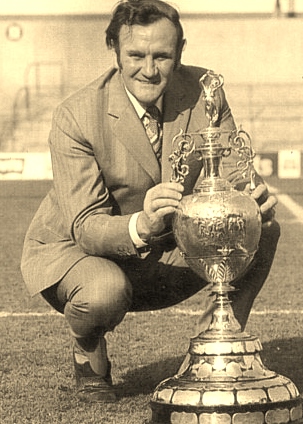Exploring the Impact of Don Revie on Football

Introduction
Don Revie, a name synonymous with English football, particularly in the 1970s, led Leeds United through one of the most successful eras in the club’s history. His managerial prowess and innovative tactics transformed Leeds into a formidable force in domestic and European competitions. Understanding Revie’s legacy is crucial as it highlights the evolution of football management and the impact one individual can have on a club’s identity.
The Early Years
Born on July 10, 1927, in Middlesbrough, Revie began his playing career with the local club before moving to Leeds United in 1944. More than a player, Revie embraced coaching and tactics early on, eventually stepping into the managerial role in 1961. Under his guidance, Leeds quickly ascended through the divisions, culminating in First Division titles and a legendary presence on the national stage.
Achievements at Leeds United
Revie’s tenure at Leeds was marked by numerous accolades. He secured two First Division titles (1968-69, 1973-74), an FA Cup in 1972, and led the team to European competition success, reaching the European Cup final in 1975. His teams were known for their tough, physical style of play, often termed ‘Revie’s Warriors’, which contributed to their dominance in both England and Europe.
Moreover, Revie revolutionised scouting and training methods, emphasising the importance of player fitness and tactical preparation. His focus on team unity and discipline created a tightly-knit squad that thrived under pressure. Notably, the famous ‘Revie Plan’ established a blueprint for future managers in football.
International Fame and Controversy
In addition to his club success, Revie’s appointment as England manager in 1974 came with high expectations. However, his reign was tumultuous; he faced criticism for tactical decisions and a lack of significant tournament success, particularly during the 1976 European Championship qualifying campaign. His controversial decision to leave the national team for a coaching position in the Middle East, despite enduring fan loyalty, sparked debate about his priorities.
Conclusion
Don Revie passed away in 1989, but his influence on football endures. His innovative management style, commitment to player development, and success at Leeds United have left an indelible mark. As current and future generations of managers study his legacy, Revie’s contributions to the tactical development of football remain a critical part of the sport’s history. By examining his life and career, fans and players alike can appreciate how profound one individual’s impact can be on the interconnected world of football.









